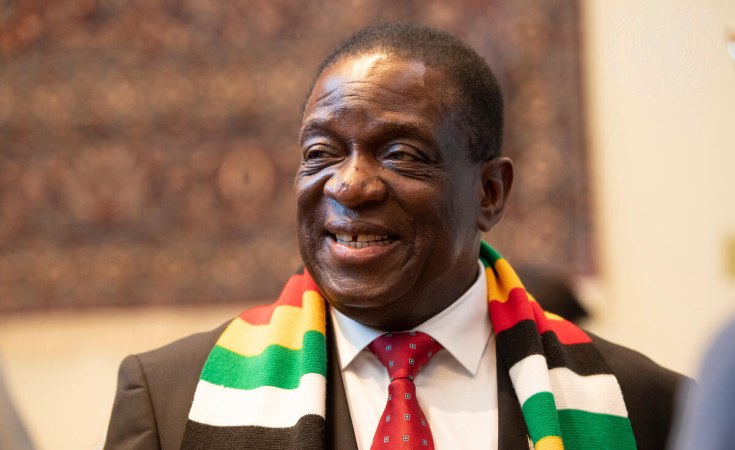PRESIDENT Emmerson Mnangagwa has revealed that his near-death experience following food poisoning at a rally in Gwanda back in 2017 inspired him to upgrade the health service delivery in Zimbabwe.
He was addressing the Kwekwe business community on Friday after having commissioned a state of the art medical facility at the Midlands State University (MSU).
Mnangagwa was poisoned at the height of factional fights in the ruling party before a military coup that ousted the late former President Robert Mugabe.
"In August 2017, I had a slight incident of poisoning in Gwanda .I was lifted to Gweru. I don't know how I travelled because I was unconscious.
"General Chiwenga came and picked me up in Gweru and took me to Harare before he flew me to South Africa. On the third day... I was unable to know where I was and what had happened to me.
"So I made a decision that the level of medical technology in South Africa must be in Zimbabwe," he said.
Mnangagwa said he had no idea that he was going to be fired from the party and was disappointed that his dream would never be fulfilled after he was expelled.
After taking over from Mugabe, Mnangagwa said he revived his dream to change the health status in Zimbabwe.
"A situation had happened... that I had jumped the border and I thought what I wanted would never happen.
"So last year in September after putting some funds together, I challenged MSU to create a state of medical centre in this country in pathology and diagnostic medicines and laboratories and that they should build a centre better than any centre in this region, that's the centre I commissioned yesterday," said Mnangagwa.
Zimbabwe's deepening economic crisis is severely affecting the government's ability to fund public health delivery and restricting poor people's access to health care, economists, government officials and health experts agree.
The doctors and nurses frequently go on strike demanding better remuneration also complaining that there are no basics such as gloves, bandages and paracetamol in public hospitals.


